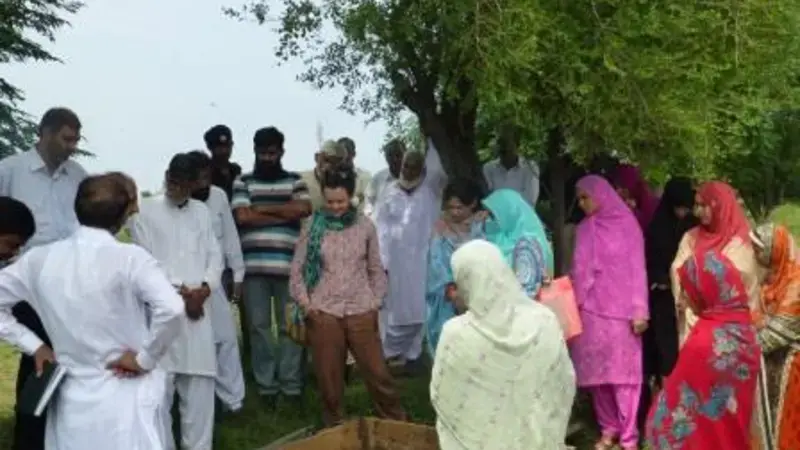Pakistan: enhancing soil fertility and strengthening smallholder production systems

An effort to improve soil fertility and health is reaping significant benefits for the productivity and sustainability of smallholder farming systems in Pakistan. The USDA-funded initiative – ‘Improving Soil Fertility and Soil Health in Pakistan’ – targets appropriate fertilizer management practices and the build-up of soil organic matter as a means of addressing the prevalent under-use, over-use and unbalanced use of nutrients by the country’s farmers. A ‘4R’ fertilizer philosophy – applying the right type of fertilizer, at the right rate, at the right time, in the right place – is promoted through field demonstrations, farmer field days, and dissemination materials, including brochures, CDs, videos, and media communications.
Researchers are promoting composting and green-manuring to improve soil health and reduce the application of chemical fertilizers; sowing wheat with direct drills into rice stubble to retain organic matter; using bio-fertilizers as an alternative to chemical options; and applying micro-nutrients to wheat, rice, peanut crops, and orchards to address serious deficiencies in crucial nutrients such as zinc, iron, and boron.
The initiative also has a gender component: the needs of women in rural communities are directly addressed through demonstrations of home-composting using organic matter from farm and household waste, which is used as a high-quality organic fertilizer in kitchen gardens. ‘Plastic tunnels’ have also been used to produce vegetables and vegetable seedlings as income-generating activities. In cooperation with the CGIAR Research Program for Water, Land, and Ecosystems, the project will also hold a gender workshop during the early part of next year to ensure that gender is adequately considered when research for development activities are designed and implemented. Participating researchers will receive training and tools to facilitate gender dimensions into their research activities.
An international partnership, the team leading the initiative includes scientists from ten of Pakistan’s research and extension institutes, working alongside researchers from ICARDA, the USDA’s Foreign Agricultural Service, and NRCS. Team members came together recently at the initiative’s first annual meeting in Islamabad to review progress and plan activities for 2015.
A subsequent farmer field day, organized by team members from the University of Agriculture, Faisalabad (UAF), the Soil Fertility Institute of Lahore, and ICARDA, stressed the importance of nutrient management to over 250 farmers in the rice-wheat growing districts of eastern Punjab. The event included demonstration of an online tool developed by UAF which calculates crop nitrogen and phosphorous requirements and required fertilizer application rates. The tool also provides recommendations on how and when to best apply fertilizers. Over 100 farmer field days are planned over the life of the Project.
